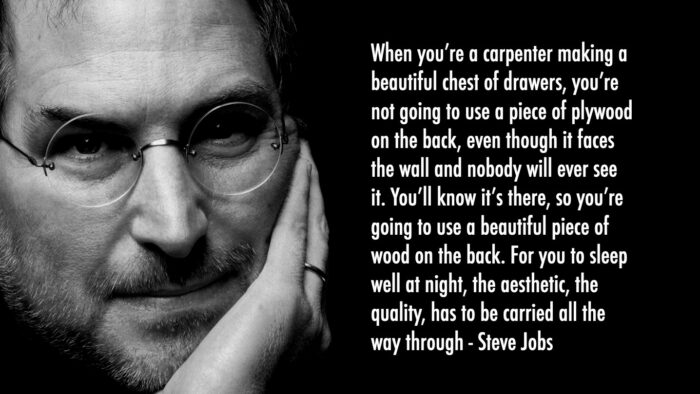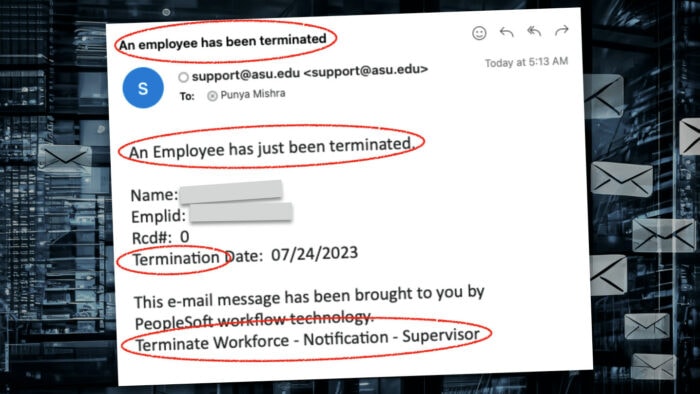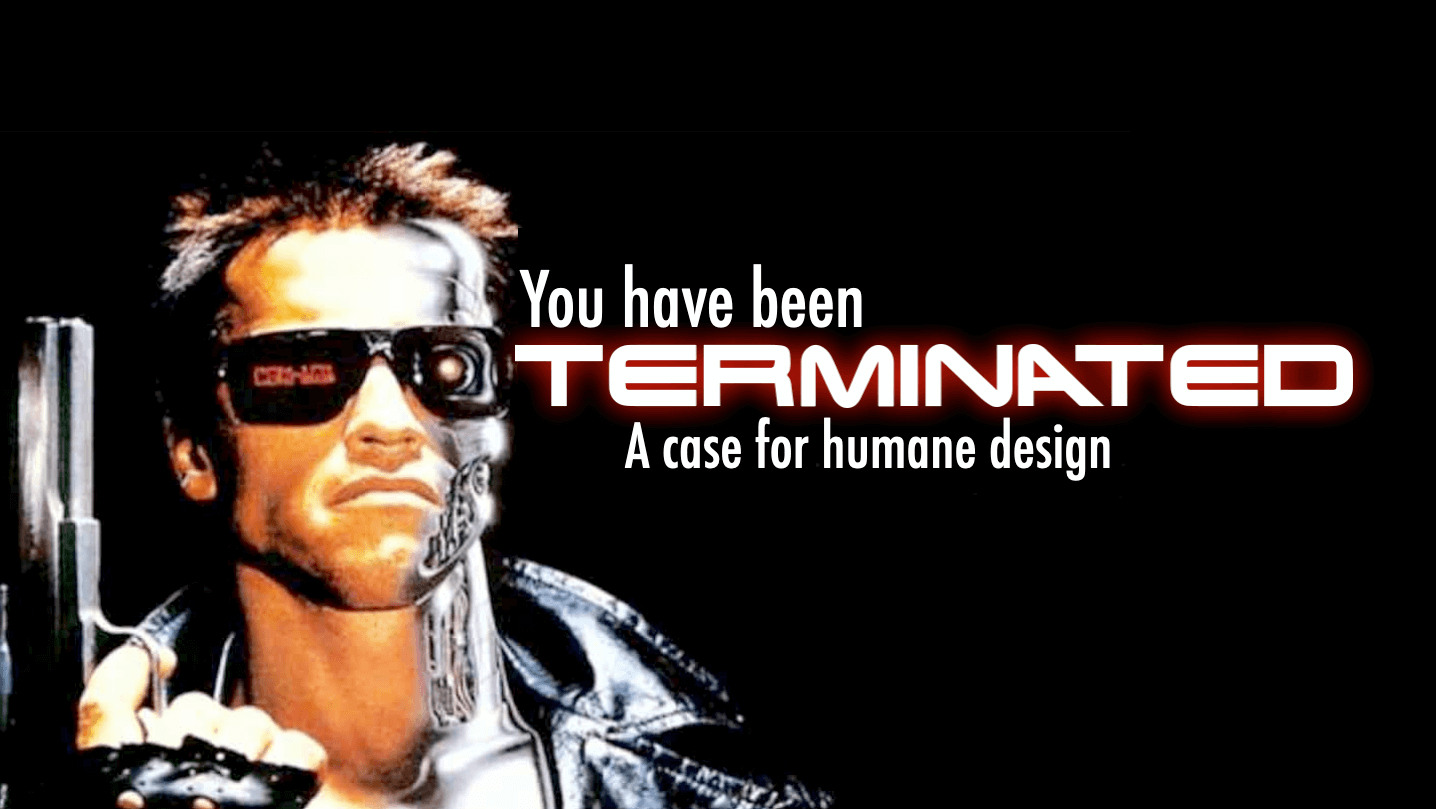Good design cares about details. Good design is humane. Bad design is neither.
Designers must bring this attention to detail and humanity to every aspect of their work. And this applies even the invisible parts. This, caring for the “invisible” details, is captured in this quote by Steve Jobs, as to why they worked so hard to get things right, functionally and aesthetically, in designing the first Macintosh computer:
When you’re a carpenter making a beautiful chest of drawers, you’re not going to use a piece of plywood on the back, even though it faces the wall and nobody will ever see it. You’ll know it’s there, so you’re going to use a beautiful piece of wood on the back. For you to sleep well at night, the aesthetic, the quality, has to be carried all the way through.

This idea of humane design, caring about the details, is deeply meaningful to me. And it bugs me no end when I see designs that do not carry “the aesthetic, the quality” all the way.
Which brings me to THE email. An email I I hate receiving and one that prompted this reflection (rant?).
To give some context, the email I am referencing is just an average auto-generated message from PeopleSoft, that I receive whenever someone, who used to report to me, quits or reaches the end of their contractual period.
One reason why this email bothers me is because I hate to see people leave my team. I love the people I work with (partly because we take great care in finding the right people), and I wish I could work with them forever. That said, people move on, for a range of reasons. As long as they are not quitting out of anger or frustration, I am happy for them and whatever they are choosing to do in the future.
But the main reason I hate this email is because of how it is written. How it is designed.
So ok, here’s the scenario, a person on my team leaves to do bigger and better things, and then, a week or so after they have gone, I receive the following email. Same format every time, just the name is different.
And just seeing the subject line gives me pause:
An employee has been terminated
I remember the first time I saw that pop up in my inbox, without context. It made my heart stop for a second. WHAT? The ….
The email then goes on to say:
An Employee has just been terminated.
Name: xxxxxxx xxxxx
Emplid: 12341234
Rcd#: 0
Termination Date: 05/11/2023
This e-mail message has been brought to you by PeopleSoft workflow technology.
Terminate Workforce – Notification – Supervisor

Everything in this auto-generated message ticks me off! The repeated use of the word “terminated” being just one of them. (Could they have chosen a worse word?) I hate the impersonal nature of the message, the inclusion of the the cryptic Emplid and Rcd#: 0 (what the heck are those?) as well as the stupid signature and pointless gobbledygook at the end. And let’s not forget the inconsistent capitalization of the word “employee” in the subject line and body of the email.
And I am not to only one with this response. As my colleague Betty Gee said, in reading a previous version of this blog post:
…the first time I got one I was horrified. It sounds like the person was a machine and they pulled the plug on “it.” Ugh.
Now it can be argued that this doesn’t really matter. That the person being “terminated” never gets to see this message. They are gone. Why make a big deal of this?
I think this objection misses the point. Details matter. Caring for people, even they are not the ones receiving the email, matters. Thoughtless, unkind emails such as these send a message—and it is not a pretty one. It is that of an organization that does not care about the people who work there. The fact that this was most probably a wonderful colleague, who did great work for the university, is irrelevant. And of course it makes me wonder about my role and value to the organization?
I also wonder why we have come to accept these thoughtless, bureaucratic, indignities? I wonder about who first wrote this, why it was approved, and how this has stayed in the system for so long? I am sure, given the size of ASU, that hundreds of such messages are sent out every year. Why has this not bothered anybody? Why has this not been fixed?
Here is an alternate version, simpler and more humane.
Subject: Update: Change in employee status
OR [Employee’s Name]: Departure notificationDear Punya,
This email is to inform you that that [Employee’s Name], who was reporting directly to you, has departed from ASU as of [last working date].
There is no action required from your end. As always, we are here if you have any questions.
Best regards,
[A human name]
[TITLE & Designation]
Arizona State University




Totally agree with the insensitive nature of the words in the original message. And yet, the word “departed” still has such deep connotations. We need to dig deeper into the thesaurus for better words to convey the message.